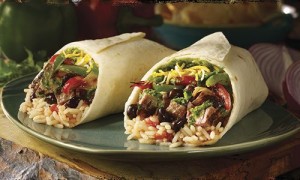Gradual exposure to moderate acidic environments may enhance the thermal tolerance and survival of Escherichia coli O157:H7 in acid and acidified foods. Limited studies comparing methodologies to induce this phenomenon have been performed.
 The effects of strain and physiological state on thermal tolerance and survival of E. coli in apple juice were studied. The decimal reduction time (D-value) at 56°C [D 56° C] was determined for E. coli O157:H7 strains C7927 and ATCC 43895 and E. coli O111 at four physiological states: unadapted, acid-shocked (two methodologies used), and acid-adapted cells. The effect of acidulant was also evaluated by determining the D 56° C for the O157:H7 strains subjected to acid shock during 18 h in Trypticase soy broth (TSB), with pH 5 adjusted with hydrochloric, lactic, and malic acids. Survival of the three strains at four physiological states was determined at 1 ± 1°C and 24 ± 2°C.
The effects of strain and physiological state on thermal tolerance and survival of E. coli in apple juice were studied. The decimal reduction time (D-value) at 56°C [D 56° C] was determined for E. coli O157:H7 strains C7927 and ATCC 43895 and E. coli O111 at four physiological states: unadapted, acid-shocked (two methodologies used), and acid-adapted cells. The effect of acidulant was also evaluated by determining the D 56° C for the O157:H7 strains subjected to acid shock during 18 h in Trypticase soy broth (TSB), with pH 5 adjusted with hydrochloric, lactic, and malic acids. Survival of the three strains at four physiological states was determined at 1 ± 1°C and 24 ± 2°C.
Experiments were performed in triplicate. For thermal inactivation, a significant interaction was found between strain and physiological state (P < 0.0001). Highest thermal tolerance was observed for the 43895 strain subjected to acid shock during 18 h in TSB acidified with HCl (D 56° C of 3.0 ± 0.1 min) and the lowest for the acid-shocked C7927 strain treated for 4 h in TSB acidified with HCl (D 56° C of 0.45 ± 0.06 min). Acidulants did not alter the heat tolerance of strain C7927 (D 56° C of 1.9 ± 0.1 min; P > 0.05) but significantly affected strain 43895 (P < 0.05), showing the greatest tolerance when malic acid was used (D 56° C of 3.7 ± 0.3 min).
A significant interaction between strain, storage temperature, and physiological state was noted during the survival experiments (P < 0.05). E. coli O111 was the most resistant strain, surviving 6 and 23 days at 24 and 1°C, respectively. Our findings may assist in designing challenge studies for juices and other pH-controlled products, where Shiga toxin–producing E. coli represents the pathogen of concern.
Journal of Food Protection®, Number 10, October 2014, pp. 1656-1833, pp. 1656-1663(8)
Usaga, Jessie, Worobo, Randy W., Padilla-Zakour, Olga I.
http://www.ingentaconnect.com/content/iafp/jfp/2014/00000077/00000010/art00001










